Should we continue to withhold Payroll Tax on employees?
By: Jacob Franklin
On August 8, 2020, President Trump signed a Memorandum directing the Secretary of the Treasury to issue guidance allowing for the deferral of payroll taxes from employee’s paychecks. Because the memo essentially instructs the IRS to issue guidance, there are more questions than answers at this point.
Here’s what we do know:
- The memo covers the period of September 1, 2020 through December 31, 2020.
- The deferral covers the Employee’s Social Security portion of the payroll tax (6.2%)
- The deferral is available to those employees whose pre-tax bi-weekly payroll is less than $4,000 ($104,000/year)
- Any amounts deferred will not be subject to interest or penalty
Here’s what we don’t know:
When will the deferred payroll taxes be due?
First, employers must be careful not to confuse this Presidential Memorandum with the employment tax deferral provision of the CARES Act. The Employer’s side of Social Security is currently eligible for deferral under the CARES Act. Half of those deferred amounts are due on December 31, 2021 with the other half being due on December 31, 2022. That deferral was allowed through legislative means and is completely unrelated to this latest development.
The deferral under the Presidential Memorandum applies to the employee’s side of Social Security, and it will have a much shorter shelf life than the provision under the CARES Act. The authority for the deferral that President Trump cited in the memo is 26 U.S.C. 7508A. This is the same authority that was used to push the due date of tax returns back to July 15. This authority allows the IRS to push the due dates back by up to one year. We will need to wait for guidance from the IRS to see what those due dates will be.
What will employers do?
Many employers have chosen not to defer the employer’s portion of the social security tax as allowed under the CARES Act. This reaction has been because it is only a deferral, and the employer would prefer to pay as they go rather than creating a large obligation in the future.
On the employee portion of the Social Security tax, our assumption is that we will see even fewer choose to defer the employee’s tax. This of course is dependent on the guidance issued by the Internal Revenue Service in reaction to the Presidential Memorandum. However, based solely on the memo, it appears that the employer is placed in a rather precarious position.
First, if the employer does not withhold Social Security tax and congress takes no action to forgive the amounts, the employer will be required to recoup those amounts from the employee at some point during 2021. This would obviously put strain on the employer/employee relationship, when a large portion of the employee’s net check is withheld to cover the prior year’s tax obligation.
Second, if the employer continues to withhold, will there be strain on the employer/employee relationship when the employee is aware that the employer is under no obligation to do the withholding?
Third, if the employer allows the employee to defer the tax, and the employment is terminated, presumably the employer still has a requirement to remit the deferred taxes. What are the employer’s options for recouping the tax from the employee? Will the employer be allowed to recoup these amounts from the final paycheck? What if there isn’t enough pay to recoup the full amount of the tax? Depending on the guidance that is issued by the IRS, the recoupment of a terminated employee’s share of payroll tax could become a question of labor law, which may create different treatments around the country because of differing state labor laws.
Hopefully the upcoming guidance from the IRS will provide answers to these questions (and others).



